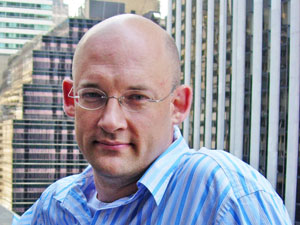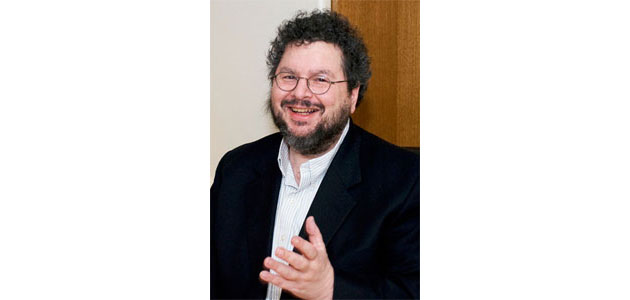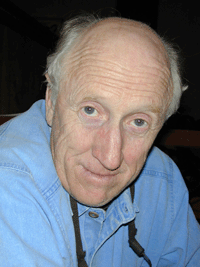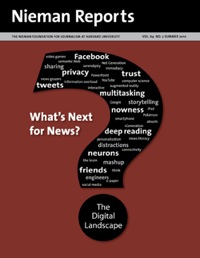The dreams of network utopians vs. the realists. Is the Internet is a medium of emancipation and of revolution — or a tool of control and repression? Did Twitter and Facebook have stoke the flames of rebellion in Iran, or did they help theauthorities unmask the rebels? — Frankfurter Allgemeine Zeitung


Evgeny Morozov Clay Shirky
There is certainly a lot of excitement within governments — both democratic and authoritarian ones — about using the Internet to advance their political agendas, both at home and abroad. The kind of assumptions that politicians need in order to decide their policies all have to come from somewhere. And much of what has been said about the Internet in the past seems intellectually invalid today.
— Evgeny Morozov
The Burmese example of communications use during their political struggle, followed by panicked shutdown, or the Ukrainian example from the Orange Revolution, or the successful Moldovan protests of last year, suggest to me that conditions under which a public that can self-identify and self-synchronize, even among a relatively small elite, is in fact a threat to the state. ... This is one of the things I want to understand about your videos, because while you and I are not polar opposites, we obviously have very different points of view about this. Do you believe that the synchronizing effect among a politically engaged public is (a) possible, and, (b) political, and if it is, what should the U.S. reaction to that be?
— Clay Shirky
Introduction
By John Brockman:
Recently, I invited Evgeny Morozov and Clay Shirky, both frequent Edge contributors, to sit down for a debate on the subjects of dictators, democracy, Twitter revolutionaries, and the role of the Internet and social software in political lives of people living under authoritarian regimes.
The profound dislocations and disruptions wrought by the Internet are subjects that invite serious thinking. "You very quickly get this kind of vertigo", says Shirky, "where you think you're asking a question about Twitter, and suddenly you realize you're asking a question about, say, Hayek."
What we are exploring here is a very recent phenomena. We have to start somewhere. As Wallace Stevens wrote in his poem "Life on a Battleship:"
We approach a society
Without a society.
The questions being asked in this conversation are for the most part coming from thinkers who are not situated in traditional academic disciplines and whose authority is not derived from institutional affiliations. This is a crowd of maverick intellectuals. In addition to Evgeny Morozov and Clay Shirky, participants in the ongoing Edge discussion include David Gelernter, George Dyson, Nicholas Carr,Jaron Lanier, Kevin Kelly, Yochai Benkler, Douglas Rushkoff, and Charles Leadbeater. Only Gelernter (Yale), Benkler (Harvard), Shirky (NYU), hold academic positions.
Perhaps one reason there are so few thinkers from the psychology, anthropology, sociology, and philosophy departments of our major universities contributing to this conversation is that communications theory has long been deemed to be a low-prestige discipline among academics. The best people are likely to be found outside academia.
I am glad Morozov and Shirky are on the case. This is important. I challenge others to get involved.
As the contributor of a number of original pieces, Shirky is well known to readers of Edge and needs no introduction. This debate was my first opportunity to meet Morozov, whose writing, in just the past few weeks, has been featured in newspapers around the world, Prospect, to Frankfurter Allgemeine Zeitung, to The Wall Street Journal.
Morozov's readers may be surprised to find out that this powerful new voice grew up in a small salt-mining town in Belarus founded by the Soviets to exploit the rich potassium deposits for export markets. Having won a national scholarship from George Soros's Open Society Institute, Morozov left Belarus for Bulgaria, where he completed a degree at the American University of Bulgaria. After a brief sojourn in Berlin and a few years working for a Prague-based tech non-profit, he is now a fellow at Georgetown and a contributing editor at Foreign Policy Magazine.
Versions of this piece are being published by Edge, Frankfurter Allgemeine Zeitung, and La Stampa.More foreign language editions to come.
-JB
EVGENY MOROZOV, a commentator on the political implications of the Internet, is a contributing editor to Foreign Policy and runs the magazine's influential and widely-quoted "Net Effect" blog about the Internet's impact on global politics. He is currently a Yahoo! fellow at Georgetown University's E.A. Walsh School of Foreign Service. Evgeny Morozov's Edge Bio Page
CLAY SHIRKY, who coined the phrase "social software" in 2002, divides his time between consulting, teaching, and writing on the social and economic effects of Internet technologies. He is an adjunct professor in NYU's graduate Interactive Telecommunications Program (ITP), where he teaches courses on the interrelated effects of social and technological network topology — how our networks shape culture and vice-versa. He is the author of Here Comes Everybody. Clay Shirky's Edge Bio Page
Reality Club: Jaron Lanier, Douglas Rushkoff, George Dyson, Nicholas Carr, Rebecca Mackinnon













